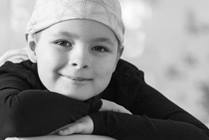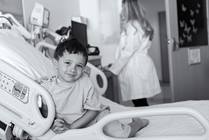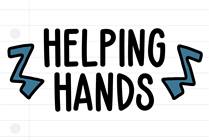Search Results
Viewing: 331-340 of 1469 | All

Condition
Lymphoma
Lymphoma is cancer which arises in the lymph system, the body’s circulatory network for filtering out impurities. There are two broad varieties, Hodgkin’s disease, and Non-Hodgkin’s lymphoma.

Article
Wilms' Tumor Treatment Options
The types of treatment used most often to treat childhood cancer are surgery, chemotherapy, radiation therapy, and bone marrow transplantation. The goal of treatment is to destroy the cancer cells. Learn more about treating Wilms' tumor.
Article
Closed Reduction of a Fracture
This Helping Hand™ explains what to expect before, during, and after a closed reduction of a fracture procedure.
Article
How to Read a 'Drug Facts' Label
Every over-the-counter medicine you can buy at the store must include a ‘drug facts’ label. This label has information about what the medicine does and how to use it safely.
Article
Colonoscopy with General Anesthesia: Infants and Toddlers
This Helping Hand™ is about how colonoscopies are done, how to prep for one, and what to expect for infants and toddlers.

Article
Hospital Safety Guide for Self-Harm
Patients at risk of harming themselves or others are placed on safety precautions as soon as they enter the hospital. These safety rules remain in place throughout the child’s hospital stay.
Article
Colonoscopy with General Anesthesia: Children (44 to 88 Pounds)
This Helping Hand™ is about how colonoscopies are done, how to prep for one, and what to expect for children.
Article
Colonoscopy with General Anesthesia: Teens and Adults (Over 88 Pounds)
This Helping Hand™ is about how colonoscopies are done, how to prep for one, and what to expect for teens and adults.
Article
Digital Blood Pressure Measurement
Blood pressure is the force of the blood against the wall of any blood vessel. The blood pressure measurement is written in numbers. The systolic blood pressure is the top number. The diastolic blood pressure is the bottom number.
